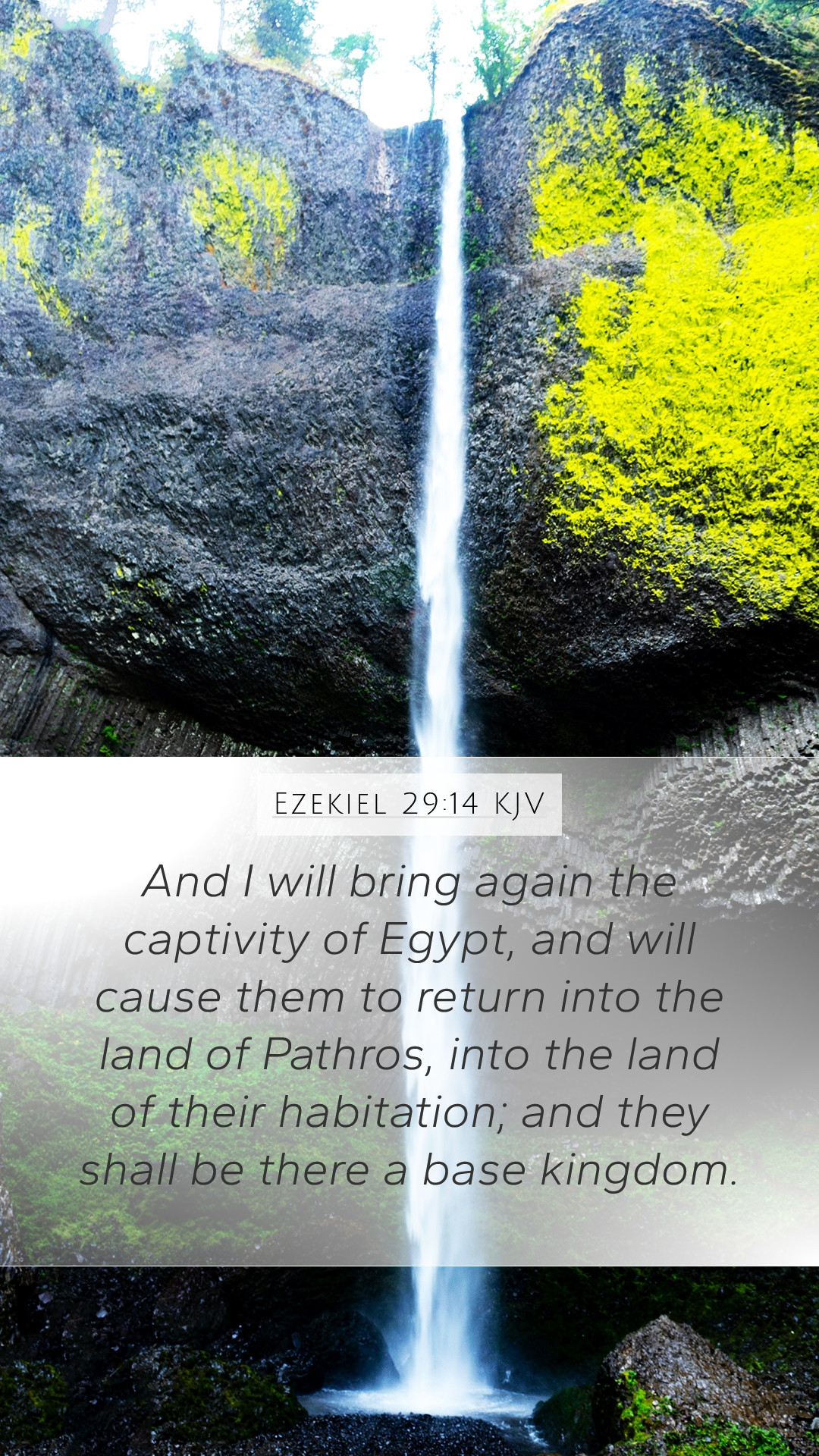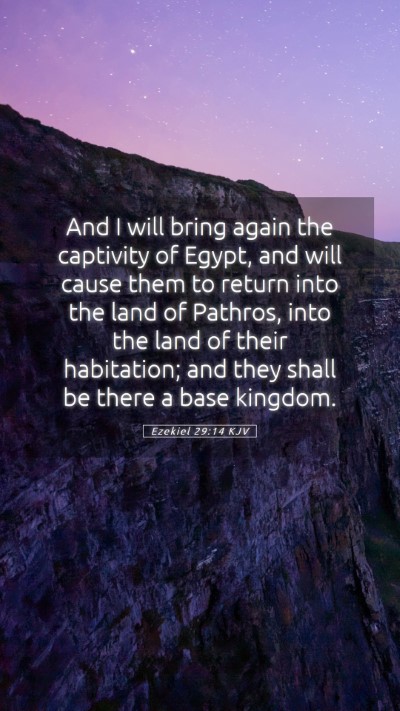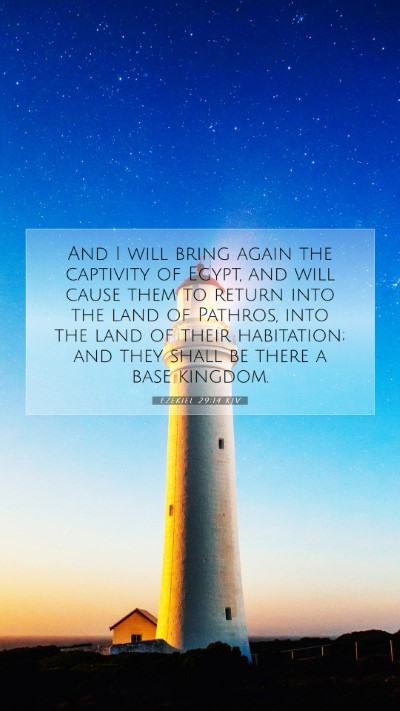Bible Verse Meaning: Ezekiel 29:14
Ezekiel 29:14 states, "And I will bring back the captives of Egypt and cause them to return to the land of Pathros, to the land of their origin; and there they shall be a lowly kingdom." This verse forms part of a prophetic declaration concerning Egypt and its future restoration. An analysis of this passage reveals themes of divine judgment, restoration, and the sovereignty of God over nations.
Overview of the Verse
The verse expresses God's intention to restore the people of Egypt after a period of judgment and humiliation. It highlights a significant transition from captivity to a return to their homeland, the land of Pathros, often associated with Upper Egypt. This restoration is indicative of God's overarching plan for all nations, not just Israel.
Insights from Public Domain Commentaries
- Matthew Henry: He emphasizes that God's mercy extends to all nations. Henry points out that despite Egypt's previous pride and idolatry, God’s promise to restore them showcases His willingness to forgive and restore even the seemingly rebellious nations. He notes that the 'lowly kingdom' reflects both a judgment and a future hope.
- Albert Barnes: Barnes observes that this restoration indicates a divine plan to humble Egypt and return them to a state of servitude rather than prominence. He interprets 'lowly kingdom' as a reminder of Egypt's reduced status compared to its previous glory, which emphasizes the consequences of their idolatry and rebellion against God.
- Adam Clarke: Clarke highlights the significance of Pathros in the context of Egypt's identity and culture. He suggests that this mention symbolizes a return to their roots and suggests a restoration of dignity, although in a humbled manner. Clarke's commentary reiterates the importance of understanding historical context when interpreting this passage.
Key Themes and Interpretations
1. Divine Sovereignty: The verse underscores God's authority over nations. It illustrates that no kingdom is beyond His control and that He can bring judgment and later restoration according to His will.
2. Restoration and Hope: Even after judgment, there is a promise of restoration. This can bring comfort and hope to those who feel lost or forsaken, revealing God's intentions to redeem and restore.
3. Theological Implications: The broader theological implications of this passage reflect God's desire for all nations to recognize His sovereignty. It invites believers to contemplate the nature of God's judgments as part of a larger narrative of redemption.
Applications of the Verse
Believers can draw valuable lessons from Ezekiel 29:14:
- Understanding God's Judgment: This verse serves as a reminder that while God is merciful, there are consequences for rebellion against Him.
- Hope for Restoration: It emphasizes that no matter how far one may stray, there is potential for restoration through God’s grace.
- National Reflection: It invites nations to reflect on their paths and relationship with God, aspiring to humility and service over pride and idolatry.
Cross References
- Isaiah 19:22: Discusses the restoration of the Egyptians and their return to the Lord.
- Jeremiah 46:26: Reflects on the fate of Egypt and its eventual captivity.
- Ezekiel 30:3: Indicates the day of the Lord's reckoning against the nations.
- Zephaniah 2:12: Encourages nations like Egypt to seek the Lord.
Conclusion
In understanding Ezekiel 29:14 through the lens of these commentaries, one gains insights into the nature of God’s governance over nations, the hope of restoration following judgment, and the importance of humility before Him. For those engaging in Bible study, this passage serves as a profound reminder of the complexities of Bible verse meanings and interpretations.
Further Resources
For deeper Bible study insights and Bible study guides, consider exploring commentaries and facilitating discussions in Bible study groups. Additionally, using Bible study tools and resources can enhance one's understanding of Scripture analysis and Biblical exegesis.


